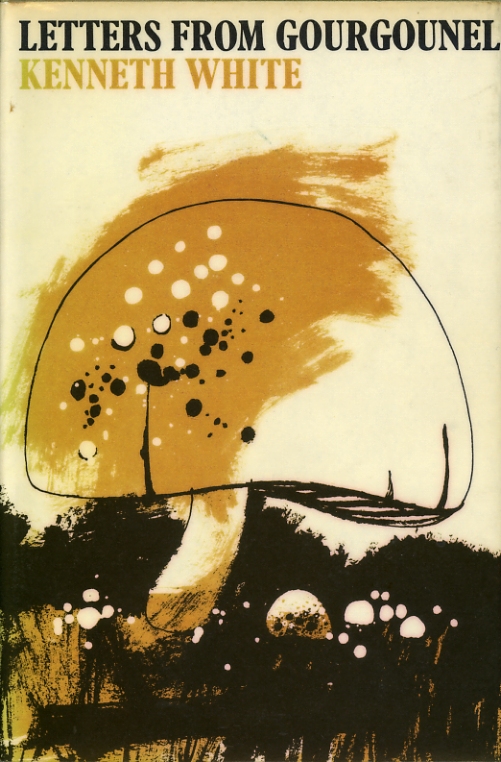Narratives
Letters from Gourgounel

The Book
1966
Narrative
144 pages
ISBN 978-0224610100
Jonathan Cape Ltd, London
At that time, the early Sixties, the Ardèche was part of what the sociologists were calling “the French desert”: outlying areas being deserted by the local populations for the big city. It was the kind of desertion I was after, but in the opposite direction. For next to nothing, I was able to buy an old farm, that looked like a fortress, situated on the heights above the valley of the river Beaume, facing the Tanargue mountain range (“tanargue”– from the Celtish for thunder). I called it Gourgounel, a word I found in an old cadastral map. The word gurgled, it spoke of sources. A place of resourcing! And, yes, there were paths galore, mostly overgrown. One of the paths I had to recover lead from the river bank up to the house. I had to hack it out with a mattock, and I can still hear the clink the mattock made as it got down to bedrock.
One of the things I wanted to do down there was find out what a real culture felt like. In the South, it was Provençal culture, now called Occitan, neither of those terms being very satisfactory. So, I plunged over the years into the vestiges of Provençal culture, before the Big Powers came in with their bully boys to wipe it off the map.
Another thing I wanted to do was explore other ways of writing. For that, I went deeply into Chinese Taoist poetry and Japanese haïku, which was pretty rare at the time. Nowadays, there’s much reference to them, but very little depth, because the ground, the earth, just isn’t there.
If I called the book containing all this (physical work, sensuous experience, intensive study), Letters from Gourgounel, “letters” in the plural, it was to put into practice a fast, vigorous dynamic of thought and expression, outside the great mass of “literature”, that was piling up all over the place, its thematics running from pathology to commonplace via sentimental banality.
At the end of the book, I say I could have lived at Gourgounel forever, but I felt I had other things to do. Which is why the epilogue to the book is entitled “The Path through the Forest”, and why the final paragraph reads: “I’m walking on the road back to Gourgounel, which I now know for sure to be first base, source base, of an itinerary that will no doubt lead me to other spaces, towards maybe a new-found land.”
Intellectual Nomadism and Geopoetics– Interview of Kenneth White by Régis Poulet and Susana L. M. Antunes – 2022
Presse Review
A few words about Lettres de Gourgounel (1979), one of the first books written by Kenneth White (his first book of prose) and also the first book I‘ve read by this author. The title of the original English edition is Letters from Gourgounel (1966) but it has been out of print for a long time now. Lettres de Gourgounel remains one of my favourites books by Kenneth White. It is a ‘bouffée d’air pur’.
The author’s lively style and great sense of humour to tell us about the old farm he bought in Ardèche, a mountainous and wild region in south-central France, about his relationships with his colourful neighbours, make us feel as if we were up there at Gourgounel. We learn much about the place and the people who live there, about the author’s love for a simple life, close to nature, about his love for books and solitude, about his work. In Lettres de Gourgounel, Kenneth White shares with us, the best of his literary and philosophical knowledge and, at that early time of his life, it was already immense. He was only 26 when he wrote Letters from Gourgounel !
Mairiuna for Scotiana.